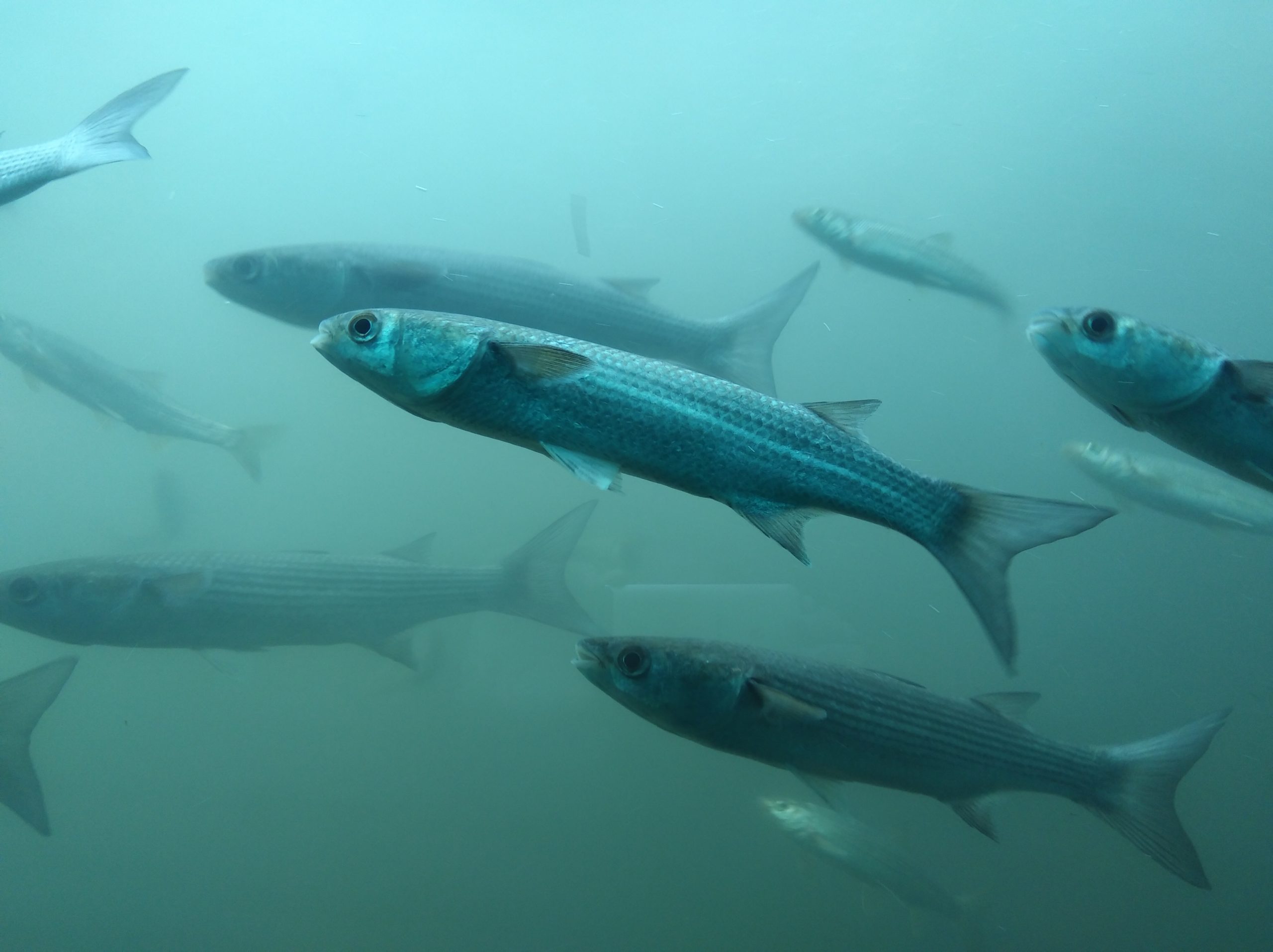We assess and enhance ecosystem services provided by diadromous fishes in a climate change context
General objective
DiadES will enhance ecosystem services provided by diadromous fishes in the Atlantic Area by creating innovative tools to ignite a transnational management under present and future climatic conditions.
Why is DiadES necessary?
Diadromous fish (shads, lampreys, eel, salmon, trout, mullet…) numbers are declining across their Atlantic distribution, causing ecological and socioeconomic impacts on local communities. Despite management measures, the situation remains critical. Why?
– Diadromous fish populations between river basins are not isolated and yet management is mostly organized at the local scale.
– They are vulnerable to climate change so a shift in their distribution would render their management an even more complex problem.
Therefore, a transnational approach is needed to enable a common management for the conservation and enhancement of the ecosystem services associated to these species that includes the explicit long-term and large-scale issues related to climate change.
What will be the main DiadES outputs?
Three main outputs will be produced to increase the capacity of policy makers and other key stakeholders to make efficient and informed management decisions in the implementation of related policies on diadromous fishes while considering the impacts of climate change:
– An INTERACTIVE WEB ATLAS will present changes in diadromous fish distributions and trends in relevant ecosystem services under climate change, promoting emerging benefits provided by these species.
– A SERIOUS GAME, of a role-playing form, will bring together target groups to (i) share the different knowledge they have, (ii) build a joint representation of fish population dynamics and (iii) imagine alternative management strategies in the face of climate change.
– POLICY GUIDELINES for a large-scale and long-term management of diadromous fishes will be formalized in a Declaration signed by all key parties involved in diadromous fish management.
Zonas
Rios
Proyectos
Participantes
Related Projects
INDICANG
http://www.ifremer.fr/indicang/
European eel (Anguilla anguilla) abundance and colonization indicators
MIGRANET
Observatory for the migratory fish populations in the Sudoe area
MIGRA-MIÑO-MINHO
http://migraminho.org
Improving the protection and sustainable management of the natural border area consisting of the international sub-basin of the River Miño, including its tributaries
EELIAD
https://cordis.europa.eu/project/rcn/88450/reporting/en
European eels in the Atlantic: assessment of their decline
MIGRATOEBRO
https://www.migratoebre.eu/
Migratory fish recovery and improved management in the final stretch of the Ebre River
ESMERALDA
http://www.esmeralda-project.eu/
Enhancing ecoSysteM sERvices mApping for poLicy and Decision mAking
PANACHE
http://www.panache.eu.com/accueil_panache
Protected Area Network Accross the Channel Ecosystem
ECOGYP
http://www.ecogyp.org
Ecosystem services, necrophagous birds of prey and habitats
MARNET
http://marnetproject.eu/
Marine Atlantic Regions Network
BON
http://www.eubon.eu/show/project_2731/
Building the European Biodiversity Observation Network
SUDOANG
https://sudoang.eu/
Promoting concerted and sustainable eel management in the Sudoe area
SAMARCH
https://samarch.org/
Salmonid Management Round the Channel
AMBER
https://amber.international/
Reconnecting European rivers together
ALOSA ALOSA AND MAIFISH
https://www.lanuv.nrw.de/alosa-alosa-2011/
Conservation and restoration of the Allis shad in the Gironde and Rhine watersheds
LIFE ÁGUEDA
http://www.life-agueda.uevora.pt/en/
Conservation and Management Actions for Migratory Fish in the Vouga River Basin
ECOPOTENTIAL
http://www.ecopotential-project.eu
Improving future ecosystem benefits through earth observations
VALMER
http://valmer.marinebiodiversity.org
Valuing Ecosystem Services in the Western Channel
DEVOTES
http://www.devotes-project.eu
DEVelopment Of innovative Tools for understanding marine biodiversity and assessing good Environmental Status
VANE
http://www.pfcyl.es/sites/default/files/biblioteca/proyecto_vane.pdf
Valoración de los activos naturales en España
SIMNORAT
https://simnorat.eu/
Supporting Implementation of Maritime Spatial Planning in the Northern European Atlantic
AN@DROMOS.PT
https://anadromos.pt/en/
Operational Plan for Monitoring and Management of Anadromous Fish in Portugal
FutureMARES
https://www.futuremares.eu/
FutureMARES examines the relations between climate change,
marine biodiversity and ecosystem services.





